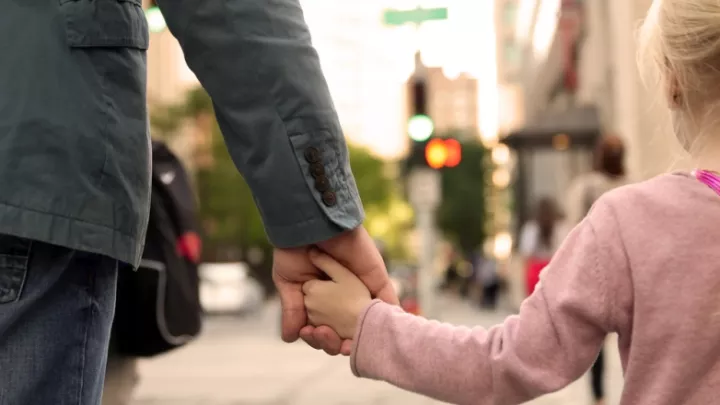
Keep Your Teen from Texting Behind the Wheel
My wife and I worry about our 16-year-old son texting and driving, which according to the reports I read, teens tend to do more than they should. I think we should take away his phone, but my wife thinks we should take away his car, which is really our car. But as parents, we agree that we are so terrified that if he does this, he may hurt himself or someone else.
According to news reports, we have every reason to be terrified, as car crashes continue to be the leading cause of harm for teens. Earlier this year, the Governors Highway Safety Association released a study that showed 16- and 17-year-old driver deaths increased 19 percent in the first six months of 2012, many of them attributable to distractions like texting while driving.
In this blog I will help parents keep their teens from texting and driving by talking to them, knowing the laws, being quick to punish them, being a role model and using phone apps to monitor texting and driving.
It doesn't take a rocket scientist to know that texting and driving is dangerous. But plenty of teens continue to do it. Most troubling is, even with all the stories of tragic car accidents happening as a direct result of distracted driving, teens and adults are still texting at the wheel.

According to a recent nationwide survey commissioned by Bridgestone Americas, Inc., 95 percent of teens surveyed admitted to texting while driving. The use of cell phones, whether talking or texting, contributes to 1.6 million crashes per year (according to the National Safety Council), which makes it a necessity for all parents to address smartphone use among teens who are driving.
If you’re trying to break texting and driving habits, the following techniques will help your teen to stay text free:
- Talk to them - Teens feel invincible and indestructible and often do not realize the dangers involved with texting and driving. They do not understand the risks or know the statistics of how many teens are injured each year due to texting and driving. Simply letting teenagers know about the dangers of driving while text messaging can send a strong message. Let your teen know that most driving while texting accidents among teens happen between 3 p.m. and 6 p.m., when they're driving home from school.
- Know the laws - If teens know that they could face up to 90 days in jail just for driving while text-messaging, or they could spend 15 years in prison for causing a fatality, they would think twice about sending that note to their friends. Texting and driving is illegal in 43 states (what is wrong with the other seven states?) yet the number of texting and driving accidents has not declined much over the past few years. If you're like most people, you need more than laws to keep you from texting and driving.
- Be quick to punish - Texting and driving is killing and injuring more teens than drinking and driving and it should be treated with equal punishment. Make the texting and driving rule a no exceptions, heavy punishment rule and be quick to enforce it. It has been proven that cellphone use while driving is 30 percent lower among teens whose parents set clear rules. There are three very important things to a teen: their cellphone, their driver's license and their keys. Let your kids know that if you find out they've been driving while text messaging, you'll take all three away.
- Phone apps to monitor texting and driving - New technology allows parents to monitor speed and texting while teen drivers are in their cars. There are apps where parents can receive text and email alerts if their teen is speeding or texting while in a moving vehicle. They even have apps like TXTShield, which when a driver reaches a designated speed (they can choose from speeds between 10 and 40 miles per hour, in increments of 5), the app shuts down the phone's ability to text. Incoming texts do not show up on the home screen, and the app sends an automatic response to the person who texted the driver, letting them know that they are driving and will respond later.
- Be a role model - Teens who see their parents’ texting while driving are more likely to repeat the same behavior. Teens learn from a parent’s example and pick up the same habits as their parents, both good and bad. Put your phone away every time you get in the car and never text and drive unless you want your teen driver to do the same. Parents can have a huge influence on their children. You can let them know that it's unacceptable for them to be on the phone, but setting a good example is even more powerful. They watch what you do, on the road; staying off the phone should be the rule for everyone.
In closing, it’s no wonder car insurance premiums for teenagers are through the roof. It’s tough for your teen when their phone makes a noise while they’re driving down the road and their eyes are immediately drawn to the screen to see who needs them. Texts and phone calls let you know you're needed and important and most people can't help but look to see who needs them. It’s our human nature, but we must teach our teens it's also the cause of thousands of deaths and hundreds of thousands of injuries every single year across the United States.
I understand that good habits take time to form, about 21 days. If you do something repeatedly for 21 straight days your mind will accept it as a habit and make it a part of your daily life. Exercise routines and diet programs work this way. If you can make it 21 days in a row, you've formed a new habit to better your life. When it comes to the habit of texting and driving, you might be saving your teen’s life too!


